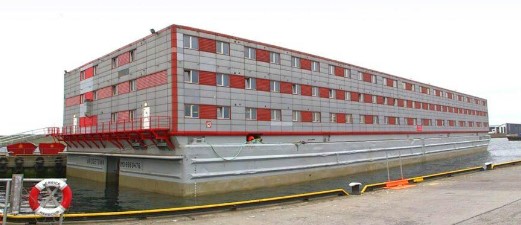In response to the Bibby Stockholm barge incident Kevin Wellman, CEO of the Chartered Institute of Plumbing and Heating Engineering (CIPHE) highlights the steps to take to prevent Legionella.
Compliance
When looking to reduce Legionella risk, the importance of understanding standards and regulations, and how to comply with them, cannot be overlooked. This includes guidelines produced by the Health and Safety Executive (HSE), from ACOP L 8 to HSG 274, as well as industry-specific standards such as HTM04 for health care premises.
The seven mandatory requirements of any water system with the potential to be a source of Legionella bacteria growth are:
- There must be an identifiable duty holder – this can include employers, facilities managers, or anyone in control of premises
- There must be a competent and appointed person to monitor the system
- Systems must be monitored and maintained at all times
- Systems must be risk-assessed on a regular basis
- Records or a logbook must be kept
- Plans of the system layout must be readily available
- The system must be regularly cleaned
Checks and risk assessments
As outlined above, water systems with the potential to become a source of Legionella bacterial growth must be regularly checked and risk assessed. Practical risk assessments should include looking at associated risks for circumstances, such as working in confined spaces or at height.
For systems containing a calorifier, a monthly check should be carried out to ensure that the storage temperature remains at 60oc, and that the return temperatures stay above 50oc (55oc in healthcare premises). There must also be an annual check of the integrity of the calorifier. This can be done either by accessing an inspection hatch or by draining down for a sample.
Monitoring and maintenance
There is a huge range of water distribution systems, from small to large and simple to complex. It is important to be aware that all systems require monitoring to prevent Legionella growth, even those that may be classed as ‘little use’, such as caravans and motorhomes.
To limit build-ups of Legionella bacteria, it is important to ensure system components are in good working order and kept to an adequate hygiene standard. This must be done by a competent and qualified plumbing and heating professional, preferably one registered with an industry body such as the CIPHE.
It is worth remembering that if a system has been inoperable for a substantial period of time, it should be recommissioned as though it were new. This means thoroughly flushing, cleaning, and disinfecting, just as any newly installed system would be.
Water Safety Plan
Plumbing systems can be dangerous if they have been poorly designed or badly maintained. However, such risks can be mitigated through a Water Safety Plan.
According to the World Health Organisation 'Water safety and quality are fundamental to human development and well-being. Providing access to safe water is one of the most effective instruments in promoting health and reducing poverty’.
It is all too often assumed that because the public water supply into their buildings is safe, the water throughout the building must also be safe and wholesome. Such assumptions overlook the risk of waterborne pathogens, microbial contamination, or chemical contamination within the building.
Water safety plans can be used for water supply schemes of any size, from small community schemes to large utility-managed schemes. They are essential for the delivery of safe water in the NHS and other healthcare environments.
Their purpose is to:
- Seek to prevent contamination of water from the source to the point of consumption.
- Give consumers greater involvement and control over maintaining water quality.
The CIPHE has produced free guidance on mitigating the risk of building water systems and has published a number of guides including Safe Water Guide: Scald Prevention and Legionella along with Legionella risk assessing in domestic properties. For more information, call 01708 472721, email info@ciphe.org.uk or visit the CIPHE shop.

